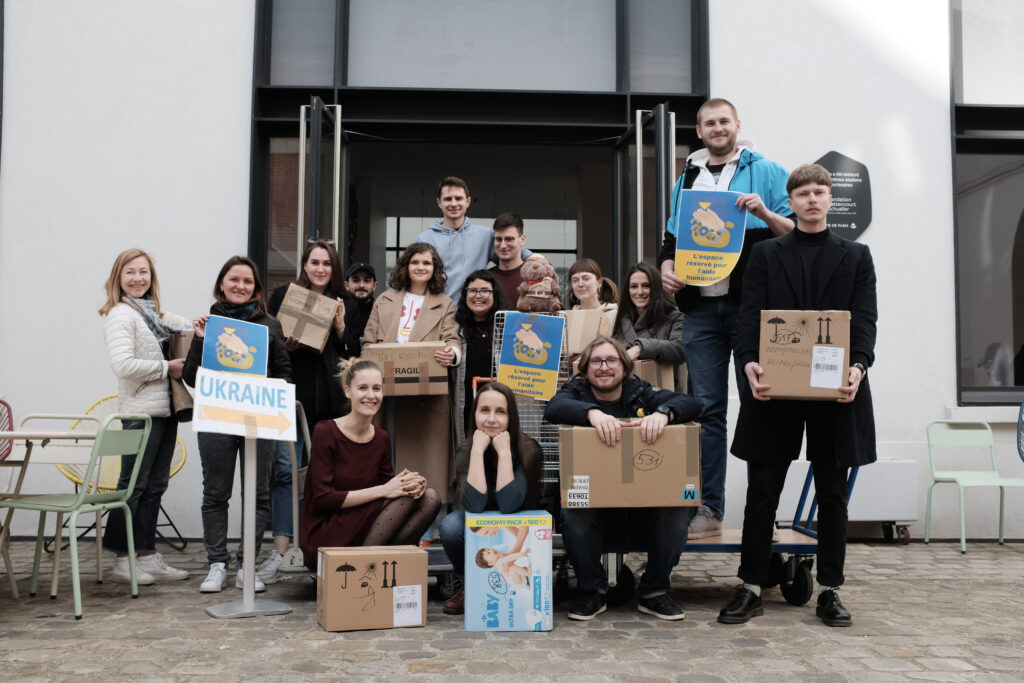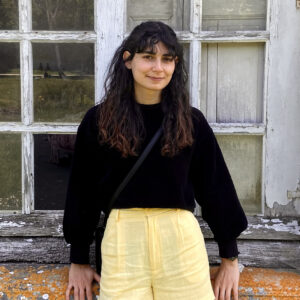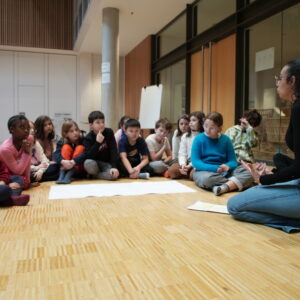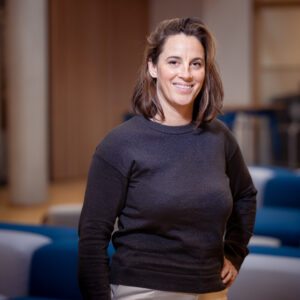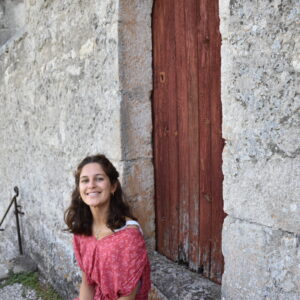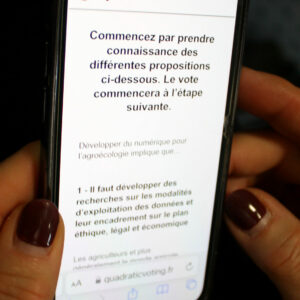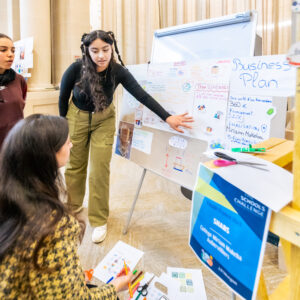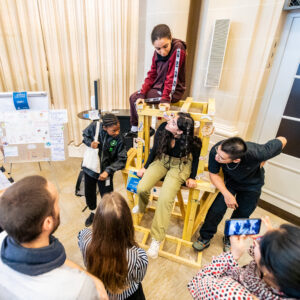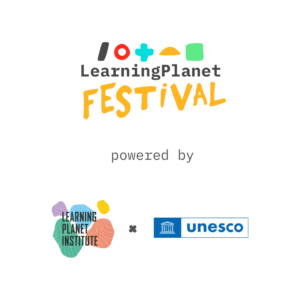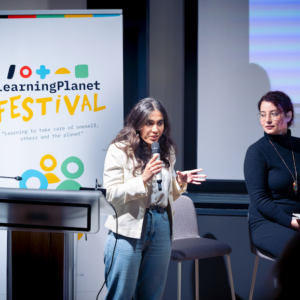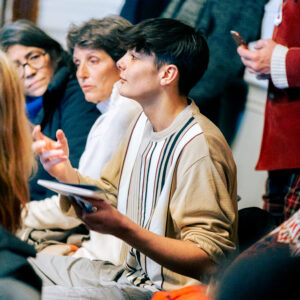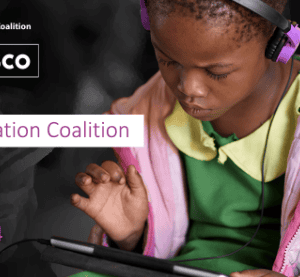A humanitarian project led by Olha Guley, a Learning Sciences AIRE Master’s student, and launched at the Learning Planet Institute, received academic recognition by the International Society of Learning Sciences.
Olha Guley and her co-authors and project collaborators, Liudmila Piatnitckaia, Valentin Corneloup, Bénédicte Gallon, and Franck Zenasni, submitted a practice-oriented paper – about the project – to the International Conference of the Learning Sciences which took place in Montréal, Canada, earlier in June 2023.
Olha adds: « To me personally, it means having an opportunity to share my day-to-day work and everyday struggle with the international community — doing everything to help Ukraine and Ukrainians defend freedom, democracy, and territorial integrity, as well as the importance of volunteering for good causes. »
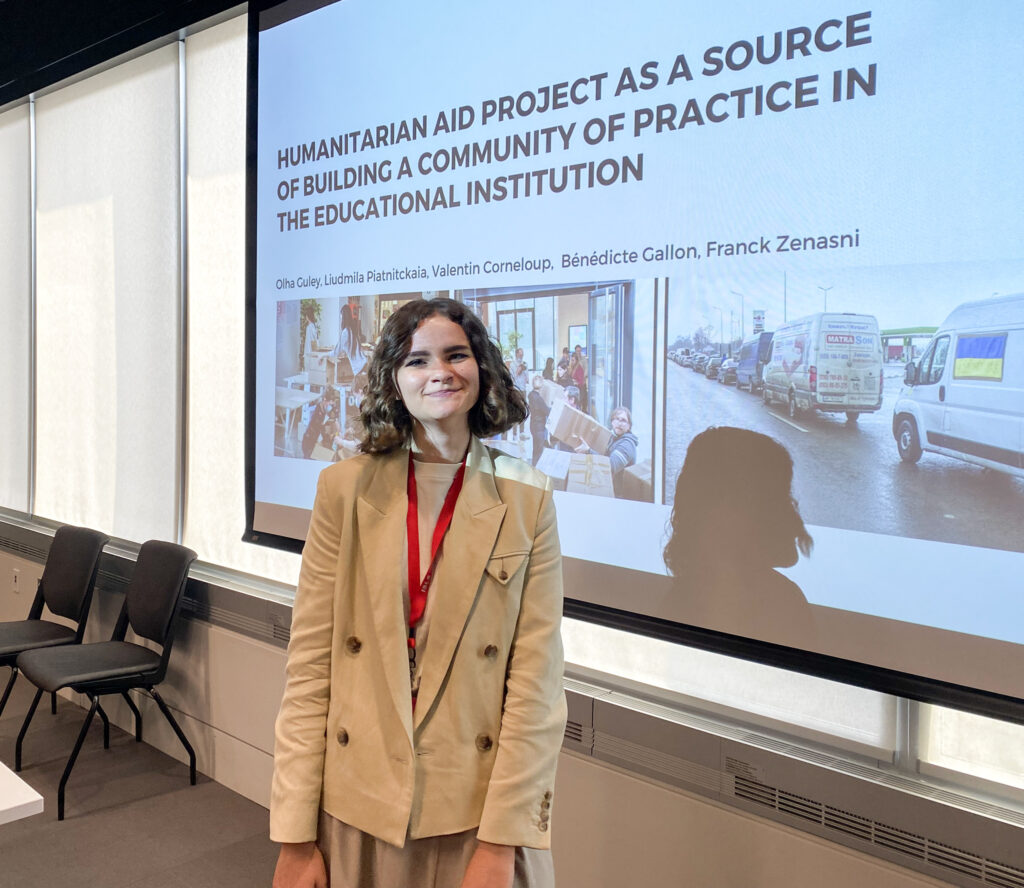
OVER 100 VOLUNTEERS AND OVER 75 TONS OF HUMANITARIAN AID SENT TO UKRAINE
On February 24, 2022, a full-scale Russian invasion of Ukraine began. In response, “Paris Help Ukraine” was immediately launched at the Learning Planet Institute by Olha Guley, a second-year Learning Sciences Master student . As civic activities are at the core of the Master activities and the Learning Planet Institute, they supported the humanitarian action for Ukraine.
The project aimed to collect, sort, pack, and send humanitarian aid to Ukraine in cooperation with Plast — Ukrainian Scouts in France and the Embassy of Ukraine in France. It involved opening a collection point at the Learning Planet Institute, gathering a team of volunteers, designing a learning programme for the volunteers, and ensuring active communication within the community and with the media.
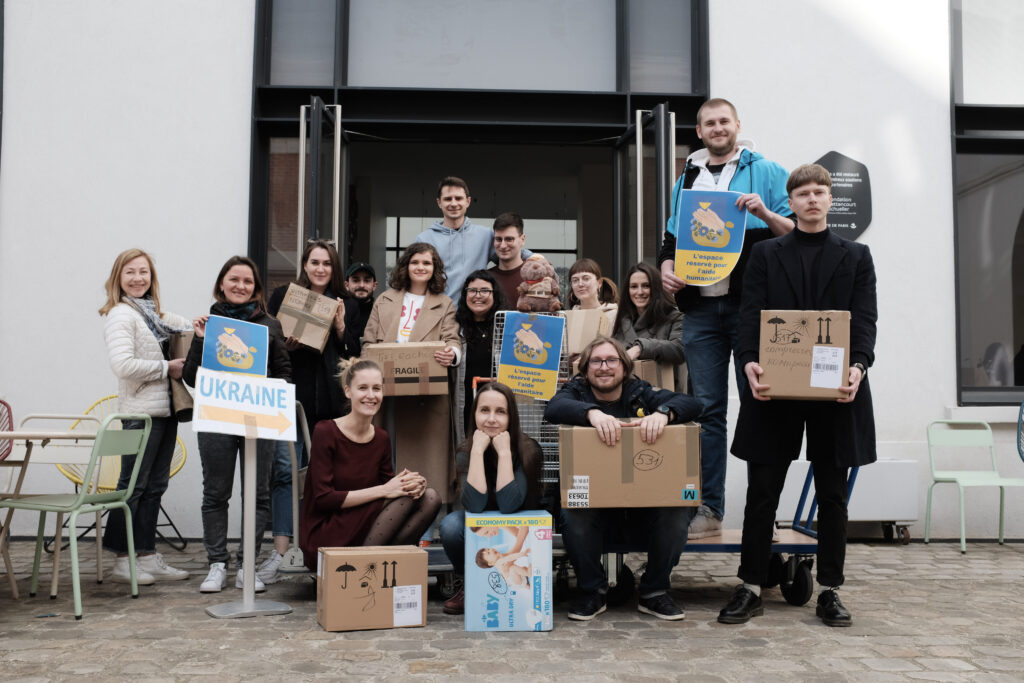
Within four months, the project successfully engaged over 100 volunteers, established more than 40 partnerships with organisations in France (local governments, schools, educational communities, logistics companies, various enterprises, NGOs, etc.) and more than 15 NGOs in Ukraine, and sent over 75 tons of humanitarian aid. This translated to 6,754 boxes packed by volunteers from numerous countries around the world (Ukraine, France, USA, Poland, Italy, China, India, Sri Lanka, Peru, Russia, and others).
THE APPLICATION OF LEARNING SCIENCES IN A HUMANITARIAN CONTEXT
Olha says, « The fact that the paper was accepted means that the work of the community of volunteers involved in our initiative to help Ukraine has contributed to the work of the International Society of Learning Sciences. That is living proof that learning occurs where we don’t expect it to occur. This also means that student initiatives are valuable and cause real impact when administered wisely.«
The “Paris Help Ukraine“ initiative is an example of the successful creation of a community of practice and the implementation of the concept of collaborative learning and service-learning at the institutional level. The project shows an example of an active and impactful community of practice, which can inspire other educational institutions to engage in civic activities.
The paper analyses the process of creation and management of the project as well as defines the learning outcomes for the community of volunteers engaged in the project.
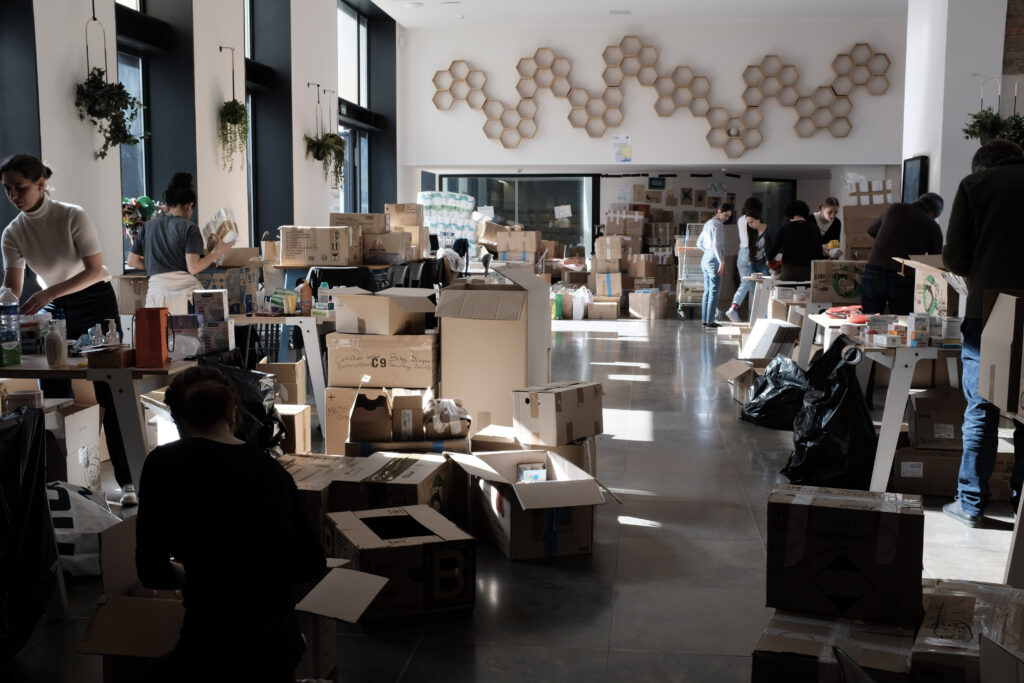
Olha Guley and her co-authors used “learning paradigms of communities of practice and service learning to describe and indicate the essential steps of the project. The result of this practical work is an instructional guide to a humanitarian project within an educational organisation. This paper documents best practices, suggests improvements, and reflects on the educational value of the activity for its participants and the hosting organisation. The entire process is described by the characteristics of a community of practice: domain, community, and practice, which make it easy to replicate in other educational institutions. »
The project also allowed the students to take full advantage of Learning Planet Institute’s vibrant ecosystem – they took the opportunity to regularly interact with researchers and employees of the Institute, as well as with volunteers and activists from outside the organisation. The learning outcomes of the project impacted several domains, such as entrepreneurship, project management, communication, event management, education management, self-development, and professional development.
The project exemplifies the Institute’s dedication to fostering community engagement and promoting civic initiatives, as well as its ability to collaborate with other organisations such as the Plast — Ukrainian Scouts in France and the Embassy of Ukraine. The Institute’s contribution demonstrates its dedication to civic and student engagement, community building, and the application of learning sciences in real-world contexts.
ABOUT THE ANNUAL MEETING OF THE LEARNING SCIENCES
The Annual Meeting of the Learning Sciences community combines the Learning Sciences (ICLS) and Computer-Supported Collaborative Learning (CSCL) conference programmes. The theme for the 2023 meeting is « Building Knowledge and Sustaining our Community, » focusing on the evolving educational and social climate and the role of technology and distributed communities. The event aims to strengthen the theoretical basis for teaching and learning practices in these conditions. The International Society of the Learning Sciences (ISLS) is dedicated to innovation and knowledge generation, and the meeting provides an opportunity for the community to share discoveries and reconnect.
ABOUT « PARIS HELP UKRAINE »
👉 Read the paper
👉 Discover the Projects page
ABOUT OUR COMMUNITY
👉 Discover other members of our community
👉 Learn more about the Learning Sciences AIRE Master
This publication is part of the UNESCO Chair in Learning Sciences, established between UNESCO and Université Paris Cité, in partnership with the Learning Planet Institute. Views and opinions expressed are however those of the author(s) only and do not necessarily reflect those of the UNESCO. The UNESCO can not be held responsible for them.
Thank you to Olha Guley for taking the time to answer all our questions
